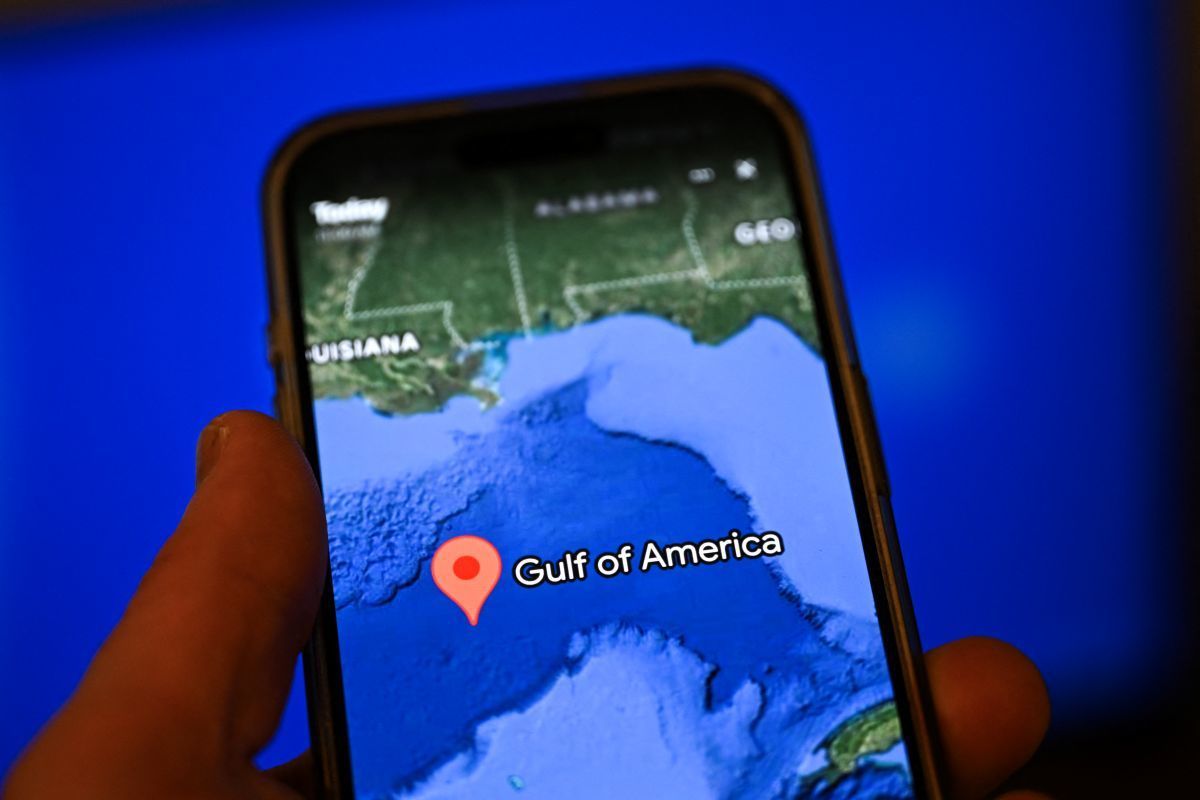
The conqueror always draws the map. And when President Donald Trump issued among his first executive orders a directive to rename what was formerly known as the Gulf of Mexico to the Gulf of America, it was more than simply a naming preference. It was a signal to the world that he was not a man afraid to upset the status quo, even when it came to changing the world’s maps. Without firing a shot, Trump conquered the Gulf of Mexico.
The changing of place names is nothing new. When the biblical Joshua conquered Kiriath-arba, he renamed it Hebron, which you can still find today in a place called Judea, which some now call “the West Bank” but was known long before that as Judea. The Democratic Republic of Congo became Zaire for a few decades, until it became the Democratic Republic of Congo again after another regime change. St. Petersburg, Russia was renamed Leningrad, U.S.S.R for a long minute until it once again became St. Petersburg, Russia. Closer to home, Colonel Sanders’s Kentucky Fried Chicken restaurant chain became officially known as “KFC” in 1991 — the year we frowned upon fried foods. One of these is not like the other, but you get the picture. Circumstances change, and names change along with them.
Most married women in the United States (79%) still adopt their husband’s last name, and civilization somehow adapts. But because of its geographic significance, and more likely because it is Trump, not everyone is happy with the Gulf of America. Most notably, The Associated Press — the nonprofit entity that calls itself “the most trusted source of fast, accurate, unbiased news in all formats” — has come out in opposition Trump’s name change:
“The Gulf of Mexico has carried that name for more than 400 years. The Associated Press will refer to it by its original name while acknowledging the new name Trump has chosen. As a global news agency that disseminates news around the world, the AP must ensure that place names and geography are easily recognizable to all audiences.”
This is not insignificant. The “AP Stylebook” is indeed the standard style guide to which most news outlets look to write news copy. From everything to how to handle the Oxford comma (you should handle it!), to whether or not to use “canceled” or “cancelled” (use “canceled” in American publications), the AP sets the standards. If you’ve ever wondered why news outlets use the standard abbreviations for states (e.g., “Tenn.” for Tennessee) instead of the postal abbreviations (“TN”), the AP is the reason. Most news organizations will have their own house style that will supersede the AP on certain items, but by and large, the AP is the defining framework for most news copy out there.
However much the AP gives the appearance of being principled when it comes to name changes, it hasn’t exactly borne that out in practice. The AP has led the way in the pronoun wars, and the way in which it has led is nowhere near the way language has operated “for more than 400 years.” For example, in 2017, the AP issued guidance saying, “Not all people fall under one of two categories for sex or gender, according to leading medical organizations, so avoid references to both, either, or opposite sexes or genders as a way to encompass all people.” That same year, the AP approved the pronoun “they” for singular usage. The AP has also long championed the use of preferred pronouns in place of pronouns that correspond to biology.
Put up against that background, the AP’s bucking against the Gulf of America seems awfully arbitrary. As veteran journalist Mark Hemingway aptly pointed out on X, “News organizations will call a man a woman no questions asked, but ‘Gulf of America’ is a bridge too far?” Hemingway wasn’t alone in noticing the double standard. Georgia Congressman Mike Collins (R) quipped, “Stop deadnaming the Gulf of America.”
But it may be difficult for the Associated Press and its fellow Gulf of Mexico protestors to hold the line. Remember Rand McNally, who published all those paper maps and atlases we used to carry around? They’re playing a wait-and-see game:
“Rand McNally will await final legal and public review through the Secretary of the Interior’s office, as required in President Trump’s Executive Order, before making any adjustments to our Atlases and maps regarding the renaming of the Gulf of Mexico to the Gulf of America.”
Maybe it’s just me, but I’m betting they fall in line with the change. Big Tech has a bigger footprint than the AP or paper map companies, and following the federal government, both Google Maps and Apple Maps have incorporated the gulf’s name change.
While Mexico (the country, not the gulf) is now threatening to sue Google for updating its map, much of the opposition has gotten lost in the flooded zone of Trump’s flurry of executive actions. After all, who has time for the Gulf of America when paper straws are under assault?
The Gulf of America’s abrupt name change is symbolic of Trump’s larger sweeping out of America’s cupboard. It’s a political chess move that has no easy escape except to just go with it. Will a future administration restore it to the Gulf of Mexico? Perhaps, but not without having to own the fact that they’d be giving away America.
Name changes are tough, but conquerors aren’t strangers to new names. As Scripture tells us in Revelation 2:17, those who persist in Christ will also get new names:
“He who has an ear, let him hear what the Spirit says to the churches. To the one who conquers I will give some of the hidden manna, and I will give him a white stone, with a new name written on the stone that no one knows except the one who receives it.” (ESV)
The Gulf of America is only a body of water, and a name change won’t bridge the gulf between Americans. But it may wake America up to the fact that the tide has indeed changed, and we as a nation will have to change along with it. Only names written in stone don’t get changed. Now that we’ve changed the name of the gulf, let’s strive toward the stone.
Originally published at The Washington Stand.
Jared Bridges is editor-in-chief of The Washington Stand. He also serves as vice president for brand advancement at Family Research Council, where he oversees continuity and consistency for FRC’s message across its various platforms. He holds a B.S. in Communications from the University of Tennessee, and a M.Div. from The Southern Baptist Theological Seminary. Jared lives in Virginia with his wife and children and serves as an elder in his local church.








